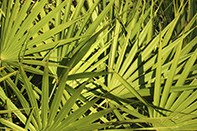Herbal medicines for benign prostatic hyperplasia
Dietary supplements and herbal medications have become increasingly popular in the treatment of men with benign prostatic hyperplasia (BPH). Many patients referred to urologists will have trialled a form of complementary herbal medicine, usually a phytotherapeutic agent; studies show that this rate ranges from 30 to 90% of referred patients.1-3
The increase in use of phytotherapeutic agents is due to a number of factors. These include increased advertising in multiple media platforms and greater availability of these agents in local health food stores and on the Internet. Also, these agents are cheaper and easier to access than established formulary pharmaceutical medications.
It is important to have a good understanding of the existing evidence for phytotherapeutics because both urologists and GPs are often asked about the efficacy of these substances. The variability of doses and different formulations makes it difficult for patients to choose between them. There is a lack of well-designed comparative studies for the multitude of formulations.
This article reviews the commonly available phytotherapeutic agents for BPH and evaluates the level of evidence supporting the use of these agents. It also reviews the natural history of BPH and considers the evaluation of the clinical trials considered, including the placebo effect.

